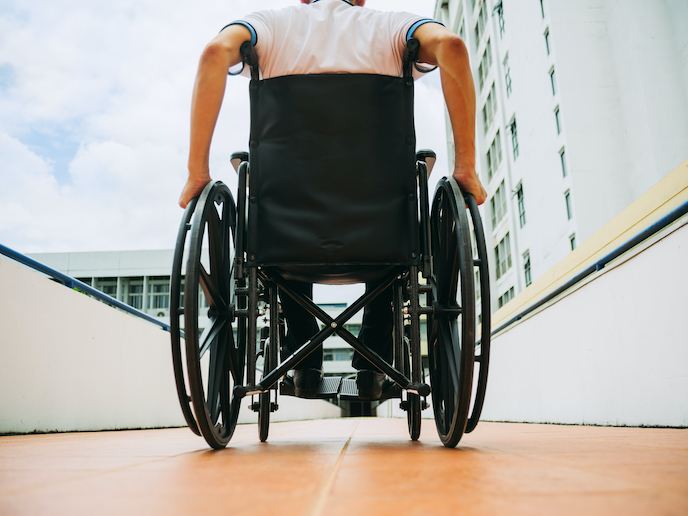New assistive devices help people with reduced mobility become more independent
For people with reduced mobility, performing the most basic of tasks can be a challenge. For example, due to prolonged sitting or lying down, people suffering from a spinal cord injury, multiple sclerosis or cerebral palsy are at an increased risk of developing pressure ulcers. Because they lack the mobility to inspect their own skin, these ulcers often go undetected. People with reduced mobility also suffer from bowel problems, including the inability to control the bowel reflex. As a result, going to the bathroom can involve extensive amounts of time and the need for assistance from healthcare providers or attendants. Not only are these issues severely disruptive to a person’s quality of life, they can also be life-threatening. Luckily, technology has opened the door to a range of innovative assistive devices that, if brought to market, could be a game changer for people with reduced mobility. “Assistive technology has the potential to empower people with reduced functions to live more independent lives,” says Tord Are Meisterplass, founder of Independence Gear(opens in new window). After a ski accident left him paralysed from the chest down, Meisterplass set out to create solutions that can help people live more independent lives. The result is Independence Gear, a Norwegian company specialising in innovative technologies. Now, through the support of the EU-funded Dignum(opens in new window) project, the company is on the cusp of bringing two life-changing devices to market.
Specific, individual solutions
Due to the limited size of the Scandinavian market, Independence Gear has its sights set on the larger – and more lucrative – German and UK markets. The Dignum project provided the market research the company needs to get there. “The costs of entering an international market are high, especially for medical devices,” says Bo Solesvik Oppedal, an administrator at Independence Gear. “On top of the typical competitive analysis, you also need to factor in each country’s specific rules and regulations for certifying a medical device.” The company’s initial plan was to bring its multifunction Dignum device to market. The device is designed to enable people with reduced mobility to use the bathroom and perform bowel care and hygienic tasks on their own, including inserting an enema, cleaning, wiping and inspecting themselves for pressure ulcers. Through their research, the company learned that there was limited demand for such a device and an even lower willingness to pay for it. However, they did receive surprisingly strong interest in the tool’s skin inspection function. “The need for an assistive device to help inspect skin and prevent pressure ulcers is much bigger than the need for an assistive device for enemas,” explains Oppedal. “We ended up abandoning the idea of a multitool because we learned that such specific and individual problems require specific and individual solutions.”
Meeting actual market needs
To better meet actual market needs, Independence Gear is now developing two assistive devices. “Through this project, the original multitool design has developed into two separate, specialised devices, one for enema insertion, called Dignum, and one for skin inspection, called Spectum,” says Oppedal. Because Spectum is a non-invasive tool, it does not require special certification – meaning it might be brought to market quicker. If appropriate funding is found, the devices could be available on the market by 2021.







